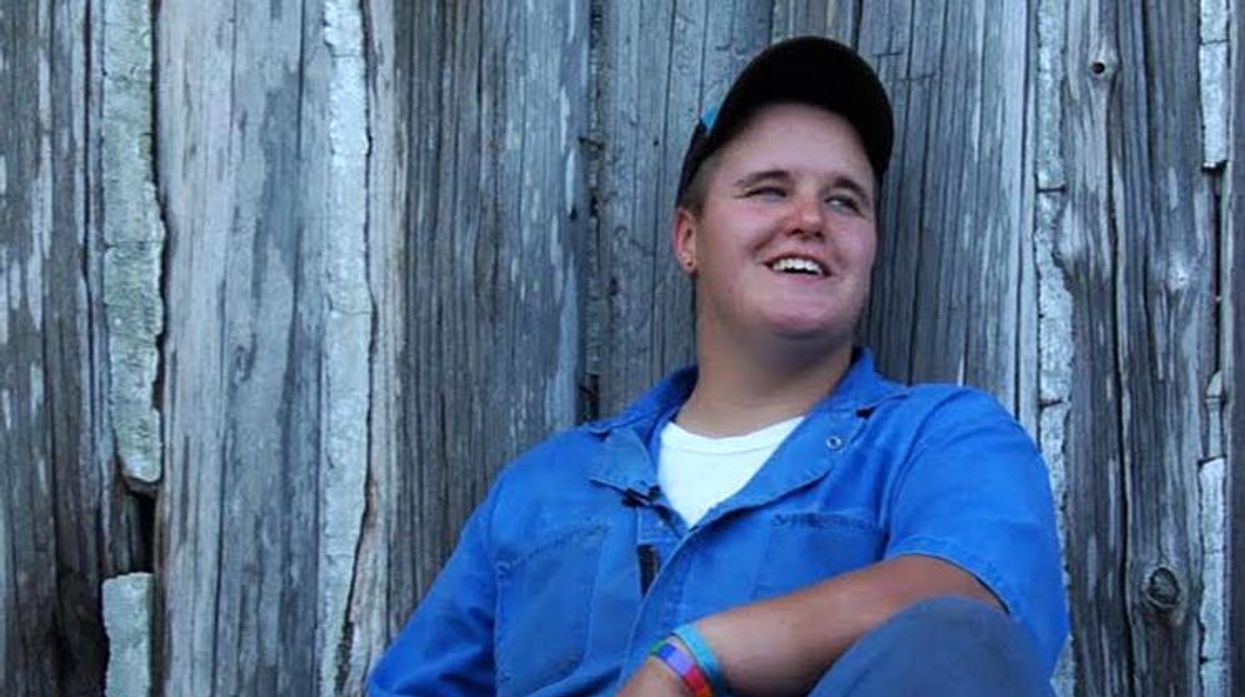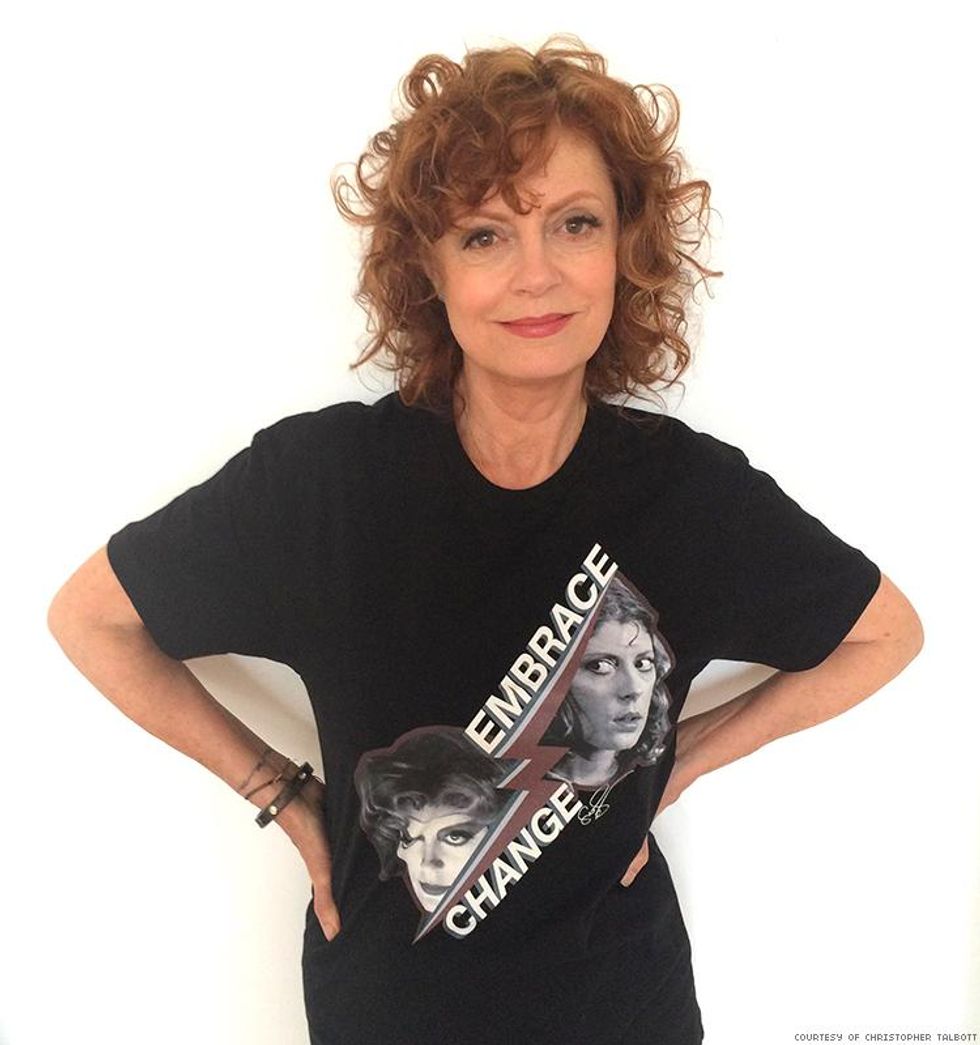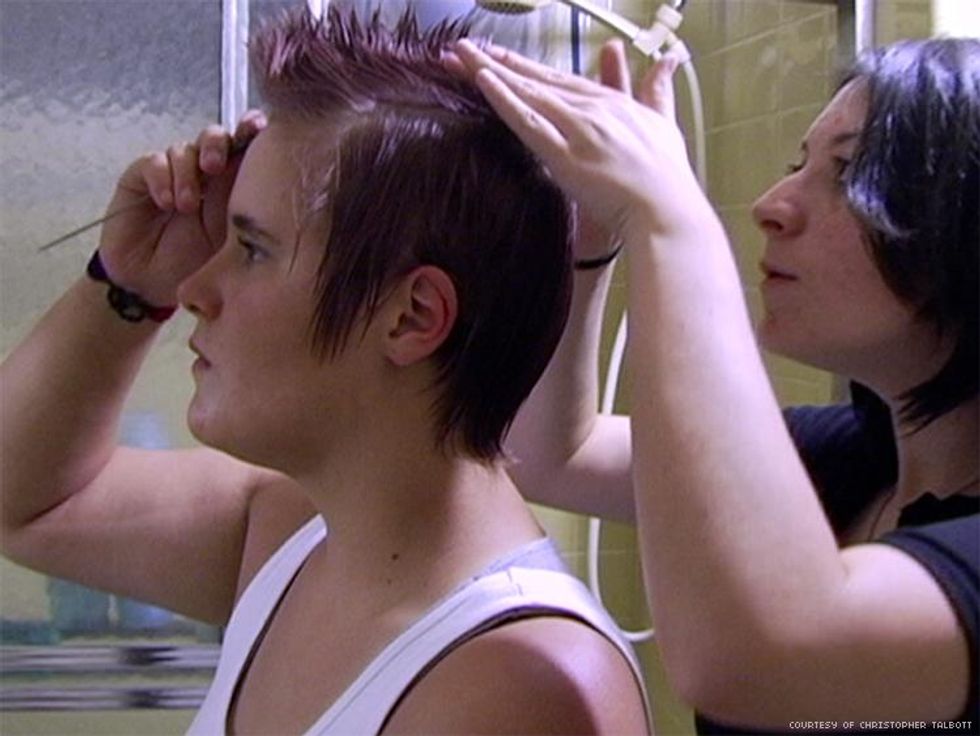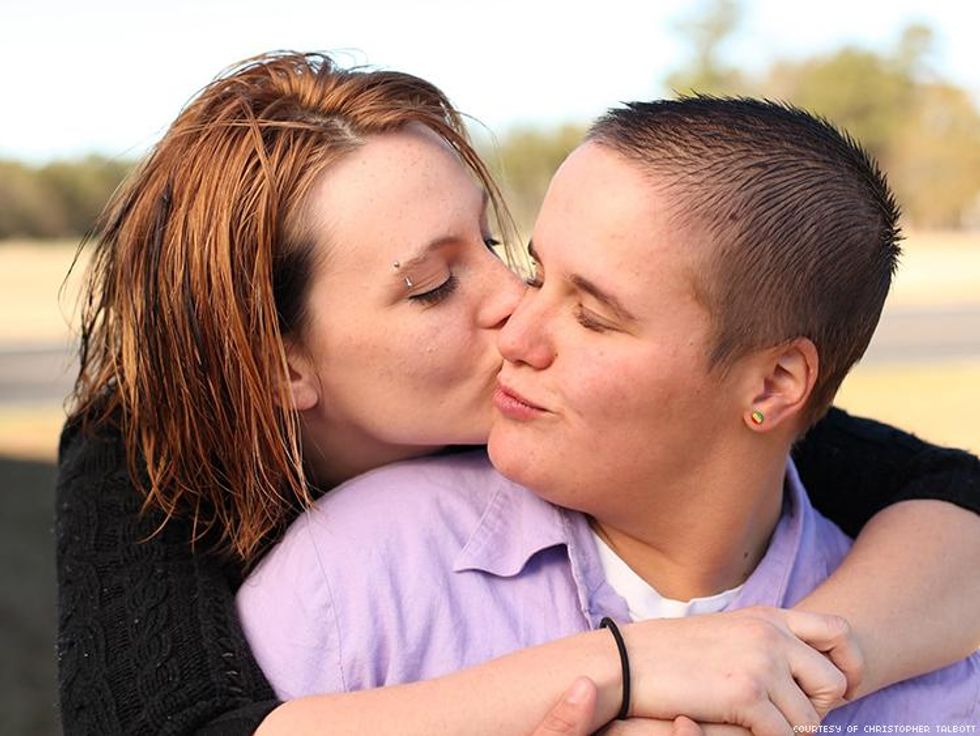The coming-of-age story of Cole Ray Davis -- a young white transgender man in rural, low-income North Carolina --is one that Deep Run executive producer Susan Sarandon says needed to be told, especially now.
In the documentary film, Davis struggles to find affection and acceptance from his family, girlfriend, and church while gradually embracing his manhood.
"When I saw the film, I felt that they had been following [Cole] for such a long time and that it was beautifully shot, and then as time went on and we got the Caitlyn Jenners of the world, I thought the film became even more important," Sarandon tells The Advocate, "because people who are transitioning do not always have access to the kind of resources that Caitlyn did."
Known for her stirring, Academy Award-winning portrayal of Sister Helen Prejean in the anti-death penalty film Dead Man Walking 20 years ago, Sarandon took pains to highlight for The Advocate the importance of Deep Run in an age when many in the media are smitten with the travails of the transgender reality TV star. People like Cole may be unsafe, "in situations where there's less tolerance and more religion."
Sarandon says she was moved by the film because,"you know, there's people that's just trying to make ends meet, can't find a job, problems that a lot of people have in the United States right now with poverty and hunger and homelessness, and then on top of that you add the challenges of transitioning without money for [medication], without real counseling, without the kind of support from a community that is so important when transitioning, and it became more and more important to me that this documentary was something people should see to understand other types of situations where people are transitioning and not just the glamorous life of Caitlyn Jenner."
The product of an over five-year creative process, the film is the brainchild of the Brooklyn-based film director and photographer, Hillevi Loven, and it is produced by Chris Talbott and Samara Levenstein and co-produced by DS Fuller. Loven is a former Sundance Documentary Fellow and media arts teacher to LGBT youth at the Hetrick-Martin Institute.
Already this year, Deep Run won best documentary at the Austin Gay and Lesbian International Film Festival and the Emerging Talent Award at Outfest Los Angeles LGBT Film Festival.
The film was also the official selection at the Woodstock Film Festival, at Out On Film: Atlanta's LGBTQ Film Festival, at Frameline 39: The San Francisco International Film Festival, at IF Film, and at the Cinema Q Film Festival.
Now Deep Run is riding the success of its premiere last Saturday at the IFC Center in New York City's Greenwich Village, where it has another screening with the producers Tuesday.
A longtime advocate for the power of cinema to tell stories of justice, Sarandon provided much needed support to offset final production costs for Deep Run, and she even designed a T-shirt to help raise funds.
Loven tells The Advocate that Sarandon's indispensable support was a sign of how urgent diverse narratives of transgender people are in the United States. The daily challenges of being one's true self must be given wider exposure, Loven explains.
Loven previously co-directed a short documentary called Buffet: All You Can Eat Las Vegas with Massachusetts Institute of Technology anthropologist Natasha Schull, which won Best Short from the Society of Visual Anthropology.
Loven's previous cross-cultural filmmaking experience shines in her latest effort. Her directorial eye in Deep Run shows a particularly acute attention to depicting the distinctive atmosphere of Davis's rural Southern world.
Shot for shot, the film glows with a lyrical intimacy as the camera lingers languidly on the texture of its subjects' questioning faces and the hot, world-weary sensibility of its gasoline stations, dilapidated porches, church pews, parking lots, and wooded hamlets.
But the poetry of Loven's cinematic palette is never affectatious. Davis's world is shown matter-of-factly, and the lyricism comes from a subtle, understated illumination of everyday details.
The film's complete lack of sensationalism makes Deep Run a particularly honest depiction of low-income trans American experiences.
Loven explainsd that during the film's creative process, Davis transformed from a 17-year-old lesbian named Spazz to a strong-willed, religious trans man with a knack for activism.
Loven praises Davis's "generosity of spirit" and how he intuited the way that "getting his story out there is a means to carve out his place in a challenging world."
"I met Cole when he was 17," Loven says. "He was already thinking about making places more inclusive. But 17 is a really tense age and there was a wanting to fit in, a wanting to make everything work for everyone he was encountering in the community. But then [later in the film] there was another push, a wanting to be proud and stake his ground."
Two-thirds of the way into the film, Deep Run becomes a love story.
Davis has been exiled from his family's house and he falls in love with a tender, smiling woman named Ashley who takes him in. It is within Ashley's church that Davis tries to find acceptance as a trans man.
As his masculinity becomes more pronounced, the couple debate whether to disclose his trans experience. The ebb and flow of their romance forms the bedrock of Davis's struggles in the film.
"I fell in love with the idea of love. I just hoped it would help me not feel so alone," Davis tells The Advocate in an email.
Davis was thoughtful and laconic in conversation with The Advocate when he described his time as the subject of Deep Run.
"[Making the film was] fun and sporadic, more overwhelming than anything," he says "It is difficult living openly trans in the Deep South, there are times when it can be scary, but for the most part I just brush it off and live my life. I fought so hard for acceptance because I thought I deserved spiritual help as much as anyone else did. And I was so tired of hearing Christians say we believe that only God can judge, yet their whole practice seemed to be about judging, and I just thought I wanted to challenge that,and see if I could be accepted."
Watch the trailer, listen, learn, and bear witness to Davis's story:


















Charlie Kirk DID say stoning gay people was the 'perfect law' — and these other heinous quotes
These are some of his worst comments about LGBTQ+ people made by Charlie Kirk.